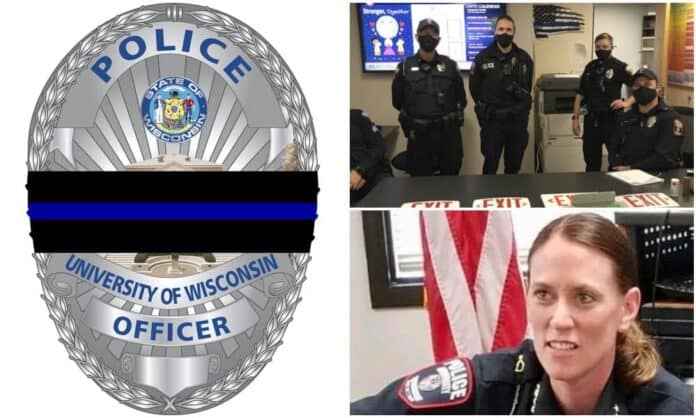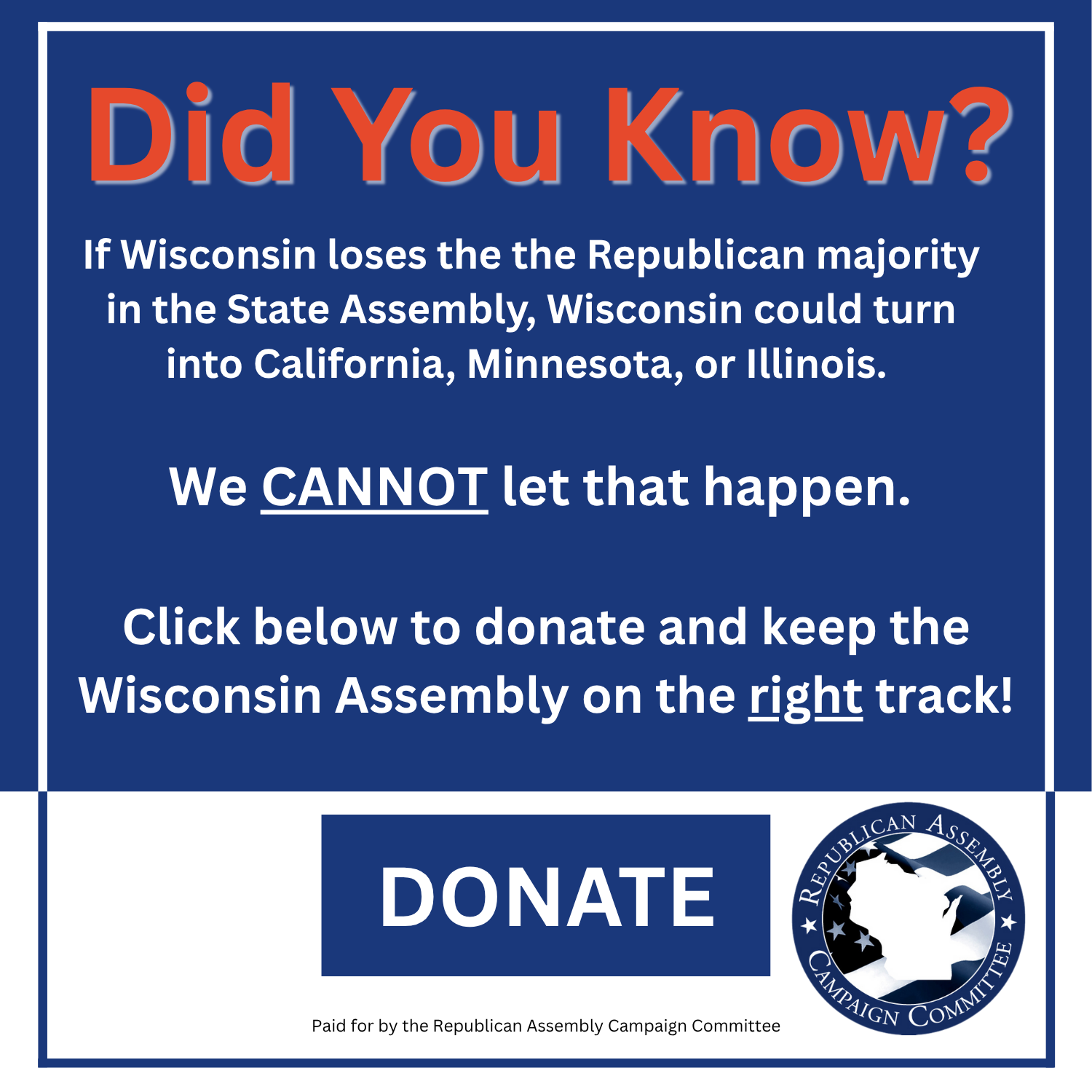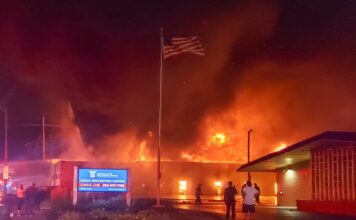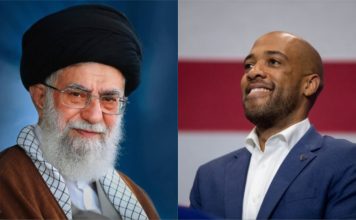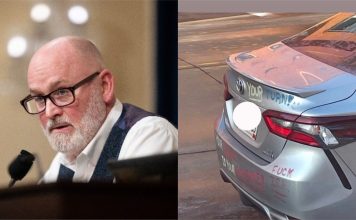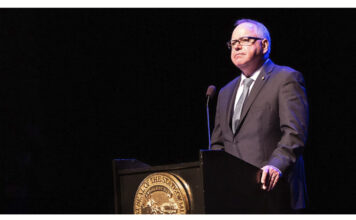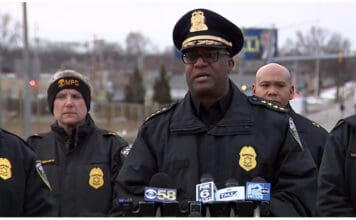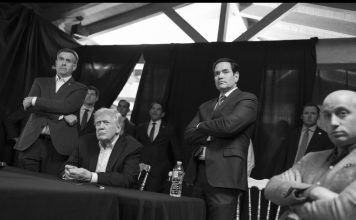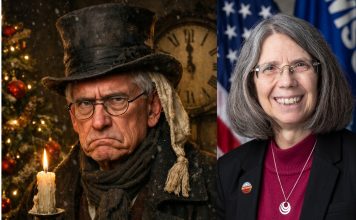The controversy first erupted when community members raised concern over a thin blue line flag shown in a tweet touting officers who broke up a theft ring.
The UW-Madison’s police chief just issued a directive that bans the thin blue line flag and imagery on everything from coffee mugs to bracelets.
“Effective immediately, visible public displays of thin blue line imagery while operating in an official capacity are disallowed. This includes flags, pins, bracelets, notebooks, coffee mugs, decals, etc.,” Chief Kristen Roman wrote in an internal email obtained by Wisconsin Right Now. She did make two exemptions: visible tattoos and possibly “displays such as line-of-duty death observances.”

Marc Lovicott, public information spokesperson for the UW-Madison Police Department, told Wisconsin Right Now that the directive was not a formal policy. “Our chief, however, did announce a temporary directive to our staff last week related to the thin blue line,” he said. At our request, he provided the internal email that the chief sent to staff announcing the new directive.
In it, she claimed that extremists who have “so visibly coopted the thin blue line flag” place officers at “greater risk.” She added, “The balance has tipped, and we must consider the cost of clinging to a symbol that is undeniably and inextricably linked to actions and beliefs antithetical to UWPD’s values.”
What does the flag mean? According to the San Diego Union-Tribune, to law enforcement, the thin blue line means “police are the force that stands between law and order and chaos, the force that safeguards society against disorder.” Thin Blue Line USA explains, “The black space above the blue line represents society, order and peace, while the black below, crime, anarchy, and chaos. The Thin Blue Line running between them, ‘law enforcement,’ keeps crime from descending into society.”
The flag has caused controversies throughout the U.S. as some have argued it’s a response to the Black Lives Matter movement. The thin blue line first showed up as a law enforcement reference in the 1950s, however, when Los Angeles Police Chief Bill Parker used the term in a force dealing with corruption controversies. In 1854, a British regiment in the Crimean War was known as the Thin Red Line because of its red uniforms, when it “stood its ground against a Russian cavalry charge,” the Tribune reported.
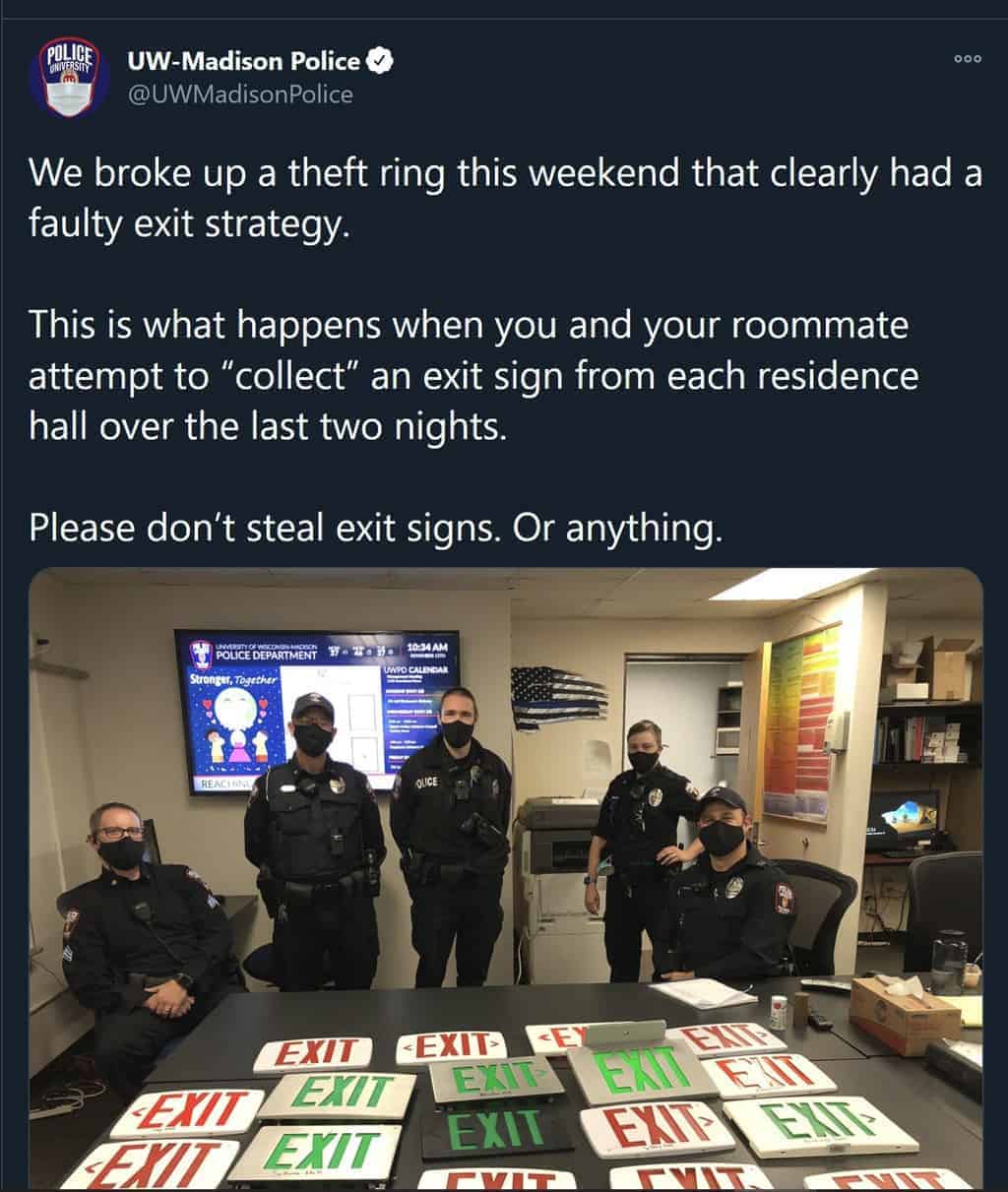
Controversy over the thin blue line imagery first erupted in November when Roman revealed that community members raised concern over a thin blue line flag that appeared in the background of a department tweet touting officers who broke up a theft ring. The only thing some community critics saw, apparently, was the flag in the background.
Here’s the chief’s directive in full:
Team –
I want to begin by acknowledging the extraordinary times in which we are currently carrying out our duties and responsibilities as guardians of our community. I certainly feel the weight of the national and local narratives that dominate the headlines depicting all police as white supremacists – a profoundly disturbing sentiment that seems to have gained wider support following last week’s insurrection at the US Capital during which extremists once again waved thin blue line flags.
I’m certain we can all agree that the actions and hateful ideologies of extremists who have so visibly co-opted the thin blue line flag in the promotion of their views not only threaten our democracy, our communities, and justice in all forms, they run counter to UWPD’s core values and significantly impede our efforts to build trust. This, in turn, places officers at greater risk physically and emotionally.
Guided by our core values, my responsibility to ensure your safety as best I’m able, and by what I believe in my heart is the right thing to do under present circumstances, I am moved to enact specific measures to distance UWPD from the thin blue line imagery and the fear and mistrust that it currently evokes for too many in our community. I understand the complexity and sensitivity of this issue. Attempts I’ve made to point to distinctions and true meaning as well as denounce acts committed under the thin blue line banner nationally continue to fall short in ways I can’t simply ignore. The balance has tipped, and we must consider the cost of clinging to a symbol that is undeniably and inextricably linked to actions and beliefs antithetical to UWPD’s values.
At the end of the day, we have dedicated ourselves to a profession that demands service above self. As such, relevant community concerns, perceptions, and fears necessarily outweigh our shared professional investment in a symbol that presently separates and alienates us from those we have promised to serve.
Effective immediately, visible public displays of thin blue line imagery while operating in an official capacity are disallowed. This includes flags, pins, bracelets, notebooks, coffee mugs, decals, etc. Upon my approval, event-specific displays such as line-of-duty death observances, may be exempted. Similarly, visible tattoos that include the thin blue line are not required to be covered, as my intent is not that we reject outright the symbol for what we understand it to represent, nor do I believe it to be inherently racist/fascist as many purport. Instead, my intent is to be reasonably responsive to its detrimental impact on many in our community for whom the visible symbol holds a very different meaning.
I know that conversations about the thin blue line have been taking place in various work units following the tweet that showed the flag in the OTR and my subsequent statement. I encourage you all to continue these discussions. I believe we have the capacity to embrace a ‘both/and’ rather than an “either/or” and while stopping short of dismantling our existing installations, I expect that I/we will be held to account for not doing so. To this end, we owe it to our community and to ourselves to grapple with the complexity of this issue and consider what degree of divestiture is most valuable for all concerned.
In closing, in addition to the restrictions around visible displays of thin blue line imagery, as we head into the next several days and the potential for peaceful protests to take a turn toward violence, I urge you to carefully consider the ways in which we engage with those who espouse ideologies antithetical to UWPD core values and the constitution we have sworn to uphold. Our usual approach to crowd management is not universally applicable insomuch as it compromises our integrity. Be very cognizant of the consequences that jovial interaction, selfies, and the like, will have for the department and our broader community in the context of everything I’ve pointed to in this not-so-brief email.
I understand that this decision may cause emotional responses, even anger from some. I, too, feel hurt and disappointed as we confront our current reality. I know this is hard. I know this issue is complicated. I also know that a symbol is not what holds us together or makes us a team. Rather, it is our shared commitment to service and to first and foremost doing what’s best for our community.
With endless gratitude and appreciation,
Chief Roman
“The best way to find yourself is to lose yourself in the service of others.” – Mahatma Gandhi
This is the chief’s November statement:
A photo shared to the department’s social media channels over the weekend has led some members of our community to express concerns regarding a ‘thin blue line’ installation that appears in the background. The installation that appears in the post is one of two installations displayed at UWPD, both of which were gifts from members of our community.
The “thin blue line” phrase and associated imagery date back decades. To many within and outside of the police profession, it symbolizes a commitment to public service and the countless selfless sacrifices willingly made to honor that commitment, up to and including laying down one’s own life to protect the lives of others. But like many things in our society, we understand the imagery of the thin blue line has evolved to mean different things to different people. Sentiments about the imagery range from neutral to denoting professional pride to expressing support for law enforcement to highlighting a toxic “us vs. them” law enforcement culture informed by hate.
This is particularly true today when the imagery has, in some cases, been co-opted to denote support of white supremacist ideologies, shirk police accountability, or otherwise dishonor the police profession. Given that, we want our community to know two things. First, we unequivocally condemn any usage or depiction of this imagery intended to defend hate or to attempt to invalidate social justice movements advocating for meaningful police reform. Second, the values of UWPD, in spirit and practice, continue to be rooted in notions of fairness, partnership, and service to our campus community.
The department is in the midst of our Racial Equity Initiative, which aspires to establish formal, community-guided accountability metrics with respect to racial equity at UWPD. As part of this process, we have and will continue to address specific concerns that arise on a case-by-case basis to determine what policy revisions can and/or should be considered. Regarding the concerns detailed above expressed by some members of our campus community about “thin blue line” imagery, we commit to including this concern as part of our ongoing discussions both internally and externally. We will continue communicating relevant progress and updates to our campus community moving forward.


